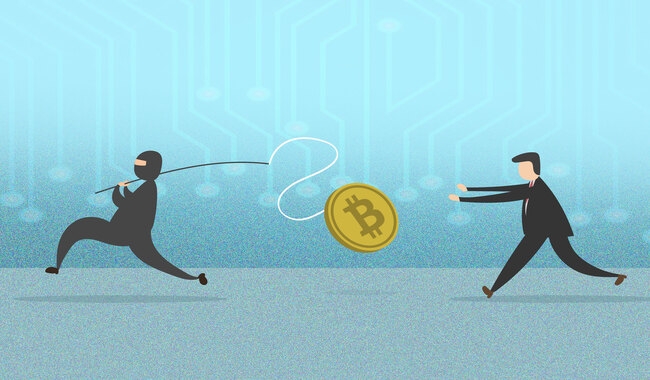Highlights:
- Hackers stole $163 million in August 2025, hitting major wallets and centralized exchanges hard.
- A Bitcoin holder lost $91.4 million, while major exchanges faced big hacks.
- Hackers use advanced social engineering and weak access controls, making recovery very difficult.
PeckShield, a crypto security firm, reported on Sept. 1, said that in August 2025, hackers stole about 163 million dollars, which is 15 percent more than July’s 142 million. These losses came from around 16 hacks, with most of the money taken in just a few big attacks. The biggest loss happened to a long-time Bitcoin owner who had $91.4 million worth of Bitcoin stolen.
#PeckShieldAlert In August 2025, ~16 major crypto exploits were recorded, resulting in total losses of $163M—a 15% increase from July's $142M.
Notably, @btcturk suffered its second major breach in just over a year, losing over $50M after a $54M hack in June 2024., bringing their… pic.twitter.com/JWiWNEDdZW
— PeckShieldAlert (@PeckShieldAlert) September 1, 2025
Big Crypto Hacks Cause Heavy Losses
Turkey’s biggest crypto exchange, BtcTurk, was also hacked again on August 18, losing between $48 and $54 million because its hot-wallet keys were stolen. The exchange faced its second major breach in just over a year, after already losing $54 million in June of the previous year. Together, its losses are now more than $100 million.
PeckShield said the stolen money was moved in a way that looks similar to hacks linked to North Korea’s Lazarus Group. Other notable incidents included ODIN•FUN, which experienced a $7 million loss, BetterBank.io, which suffered a $5 million hack, and CrediX Finance on the Sonic blockchain, which faced losses totaling $4.5 million. The CrediX hack revealed that attackers are using more sophisticated methods. They trick people into approving harmful transactions by exploiting weak security and social engineering.
In July, there were 17 hacks, including a $44 million loss at CoinDCX. In August, there were fewer hacks, but the losses were bigger and mostly hit infrastructure and centralized exchanges.
Crypto Hacks Soar in 2025
PeckShield’s mid-year report showed that in 2025, hacks are happening less often but causing bigger losses. In the first half of 2025, the average loss per hack climbed to $7.18 million, more than twice the $3.1 million average reported during the same period in 2024. Most of the losses (over 78%) came from weak access controls, like stolen private keys and fake approvals. Another 23% came from social engineering tricks. Only about 7–8% of the stolen money has been recovered.
Many of the thefts were linked to Lazarus and other state-backed groups, who quickly moved stolen funds through mixers and cross-chain bridges within hours. Experts warn that targeting people directly, faster money laundering, and political involvement make it harder to recover stolen funds.
To fight this, PeckShield and other security firms suggest using multi-signature wallets, AI tools to spot unusual activity, and better information sharing across the industry. The rise in hacks has caused big worries in the market. Last month, Arkham revealed the biggest Bitcoin hack ever, which went unnoticed for years. Their investigation found that a China-based mining pool lost 127,426 Bitcoin in 2020, now worth billions.
Rising Threats to Real-World Asset Tokenization Projects
Alongside the major hacks in August, a Certik report emphasized the rising attacks targeting Real-World Asset (RWA) tokenization projects. The report revealed that around $14.6 million was stolen during the first half of 2025. RWA projects connect on-chain systems with off-chain assets, introducing several vulnerabilities that hackers can exploit.
Best Crypto Exchange
- Over 90 top cryptos to trade
- Regulated by top-tier entities
- User-friendly trading app
- 30+ million users
eToro is a multi-asset investment platform. The value of your investments may go up or down. Your capital is at risk. Don’t invest unless you’re prepared to lose all the money you invest. This is a high-risk investment, and you should not expect to be protected if something goes wrong.






